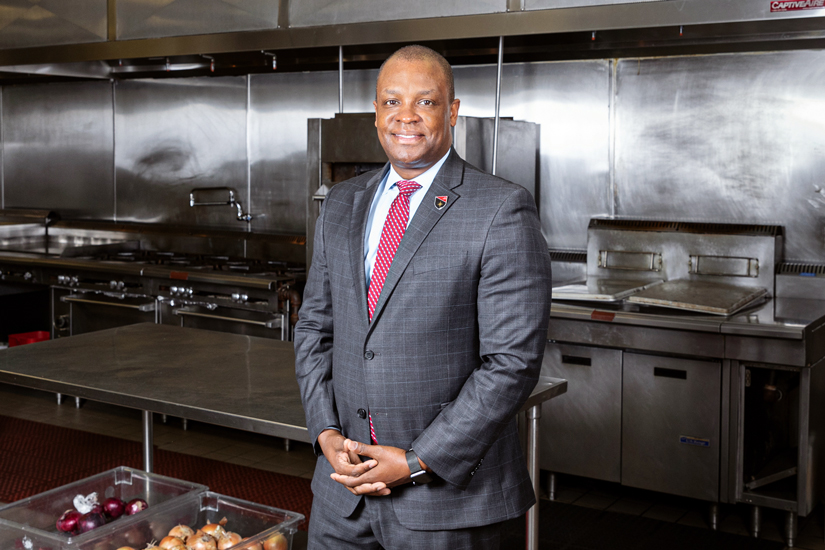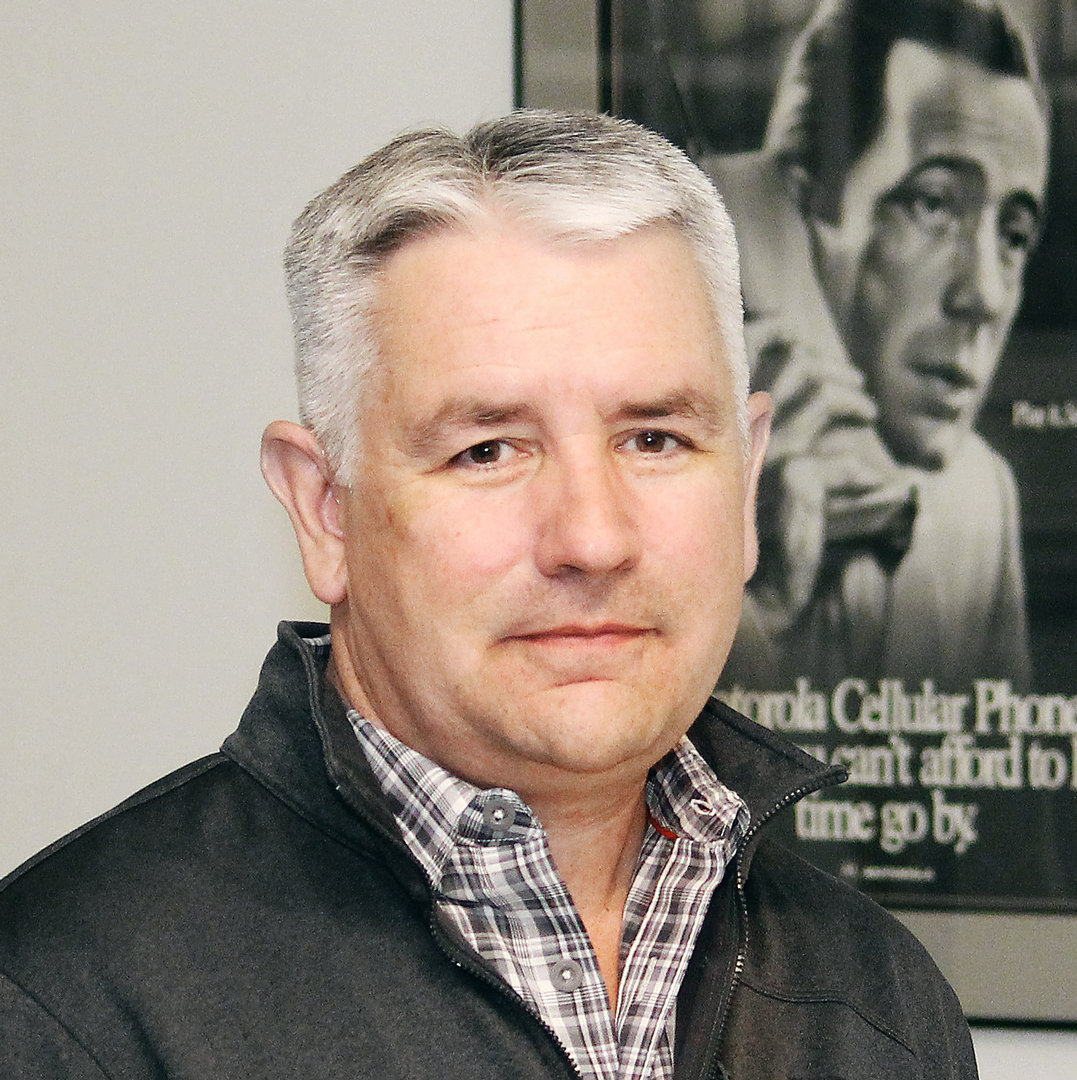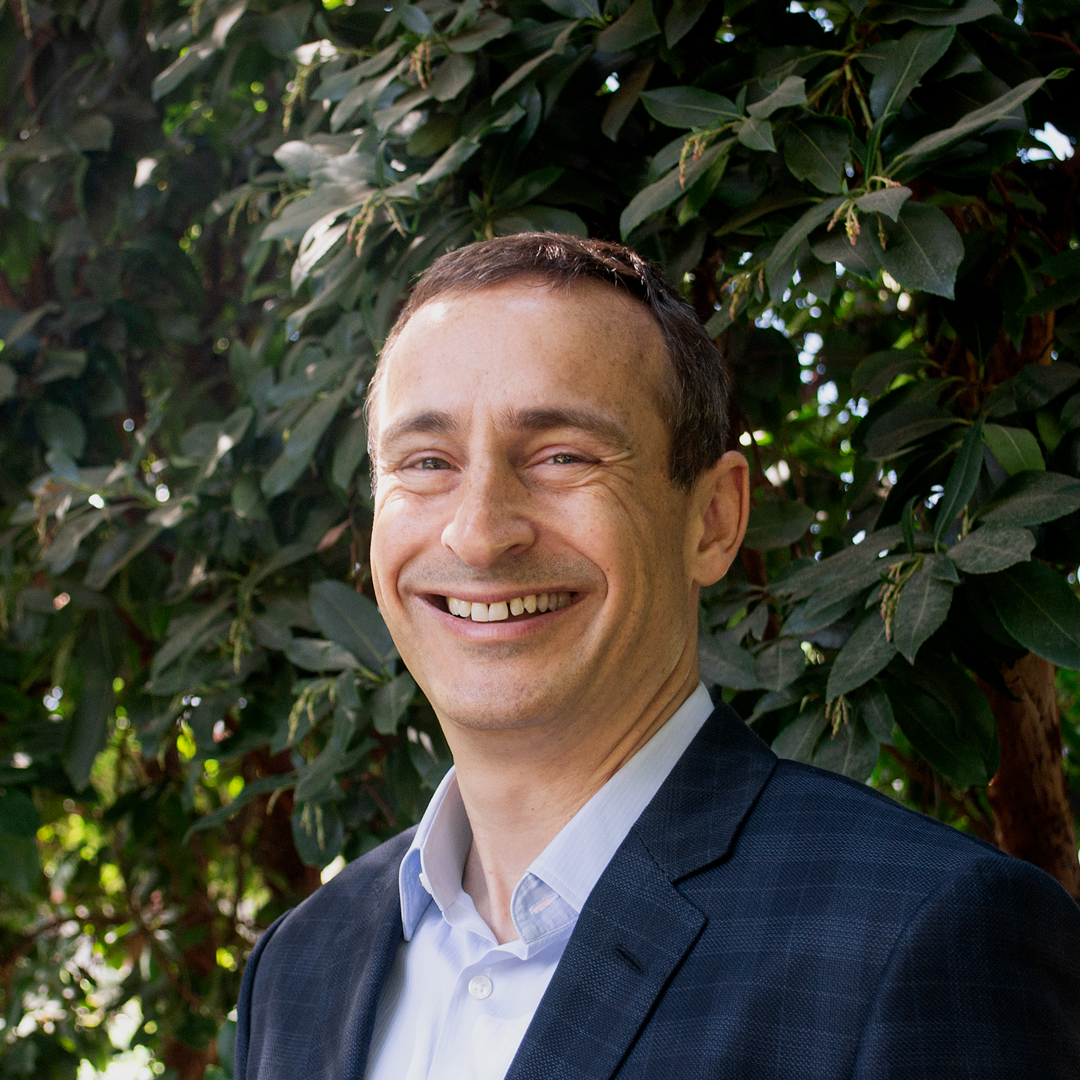|
Getting your Trinity Audio player ready... |
After completing his PhD in educational leadership and policy, Mark Scott “pushed all his chips in” on an unusual post-doctoral path. “My motivation has always been about doing purposeful work,” he says. Now he finds that motivation as CEO of the Culinary Academy of Las Vegas, with missions to reduce poverty and improve community engagement through education.
The Culinary Academy offers vocational training in hospitality services through theoretical and applied learning, as well as internships, and the robust model stands out. Though many graduates land traditional hotel and restaurant placements in Las Vegas, the education and skills gained from the Culinary Academy allows students to find success in other industries, such as healthcare.
Born of a collective bargaining process almost thirty years ago, the Culinary Academy holds interest from management and labor. Both encourage staff and potential employees to attend courses. “My job is to listen and seek ways to help,” Scott explains, and the Culinary Academy’s relationship with Culinary Union Local 226 and Bartenders Union Local 165, as well as thirty-five premier hotel and casino partners on the Las Vegas Strip, opens a direct line to member wants and needs.

Scott’s role also involves advocacy. He looks to community organizations, such as Catholic Charities and Shade Tree Shelter, to direct struggling populations toward the Culinary Academy. He also fosters partnerships with government agencies, including the Nevada Department of Training and Rehabilitation.
The majority of graduates, Scott says, come from the most underserved communities, zip codes with pre-pandemic double-digit unemployment rates. “For us it’s important to reach high, wide, and deep,” Scott says.
Scott, a self-professed crier and cheerleader, claims the least intense job of the Culinary Academy’s 229 staff members. After a reorganization, it had doubled capacity and was, pre-COVID, on track to enroll 2,400 students in 2020—not including unique turn-around projects that help its 35 employer partners train and transition their staff when a steak restaurant becomes a sushi joint, for example. This participant volume does not impact Scott’s dedication to ensure that “each student knows they are important and that they count.”
“People carry significant burdens with them in life. Employers will do well to think about that, especially now.”
In 1993, the Culinary Academy opened in a Days Inn motel on Fremont Street, the city’s old downtown. The training center now bursts the seams of a fifty thousand square foot building. “Back then, the work was simple. A fry cook was a fry cook,” Scott says. “Now the dining and beverage experience has shifted.” The CEO leads a team focused on preparing students for the modern complexities of hospitality, including digital skills and social/emotional intelligences, critical thinking, and creativity.
“We know that tech is out there, and customers will expect or accept it,” Scott says. “The question is how do we integrate tech to do no harm.” He calls on management, labor, and employees to respond, to think about the triple bottom line, employee ROI, and community improvement. “People believe that the hospitality industry will just take care of itself. My job is to build a great team to support decisions.”
Scott describes his work’s essence as cultivating supportive environments that respond to the realities of people’s lives and offer holistic solutions. Dedication to this ideal has only increased since March 2020. In these moments, Scott finds inspiration in lessons his mother made foundational to his upbringing: “It’s OK to cry. At some point you have to stop crying,” Scott says. “Everything has a season. Even the most difficult. Pick yourself up and move forward, even if it’s slowly.”
When COVID-19 hit, the Las Vegas Strip, the economic lifeblood of the region, went dark and sixty thousand union members lost their jobs. Culinary 226 and Bartenders 165 asked for help with emergency food assistance. Scott did not hesitate. “We know food. We have space. We have tech,” he says.
In forty-eight hours, they created a system for members to pick up, or have delivered, forty pounds of groceries weekly. As of August 2020, the Culinary Academy had provided over 110,000 food baskets. “This is the most humbling thing I have ever done,” Scott says. “Food insecurity is a prevalent issue. It is our responsibility to step up. We must see ourselves all in the same fight so that we can all be healthy.”
“It is our responsibility to step up. We must see ourselves all in the same fight so that we can all be healthy.”
While Scott does not sugarcoat the economic effects of COVID-19, he remains optimistic. As instructed by his mother, he puts one foot in front of the other and envisions a future where what happens in Vegas does not stay in Vegas. He already fields requests for training and curriculum support from around the country. With a shift to a hybrid instructional model, blending online learning with applied experiences, Scott intends to brand and license curriculum under his new digital initiative, the WISE3 program. Design of micro courses and credentials is also underway. “Bite-sized chunks,” says Scott, who cannot resist the pun and laughs.
Scott joined the Culinary Academy in June 2018, after the 2017 mass shooting. “I could feel that the community would not let that incident define us or permanently impact the draw and interest to the city,” he says. He feels the same about the pandemic. “Threats of keeping Las Vegas down . . . we don’t really do that,” he says, describing a city on stand-by, ready to turn it all on again.
Scott has a clear message about how to move forward. “People carry significant burdens with them in life,” he says. “Employers will do well to think about that, especially now.”

